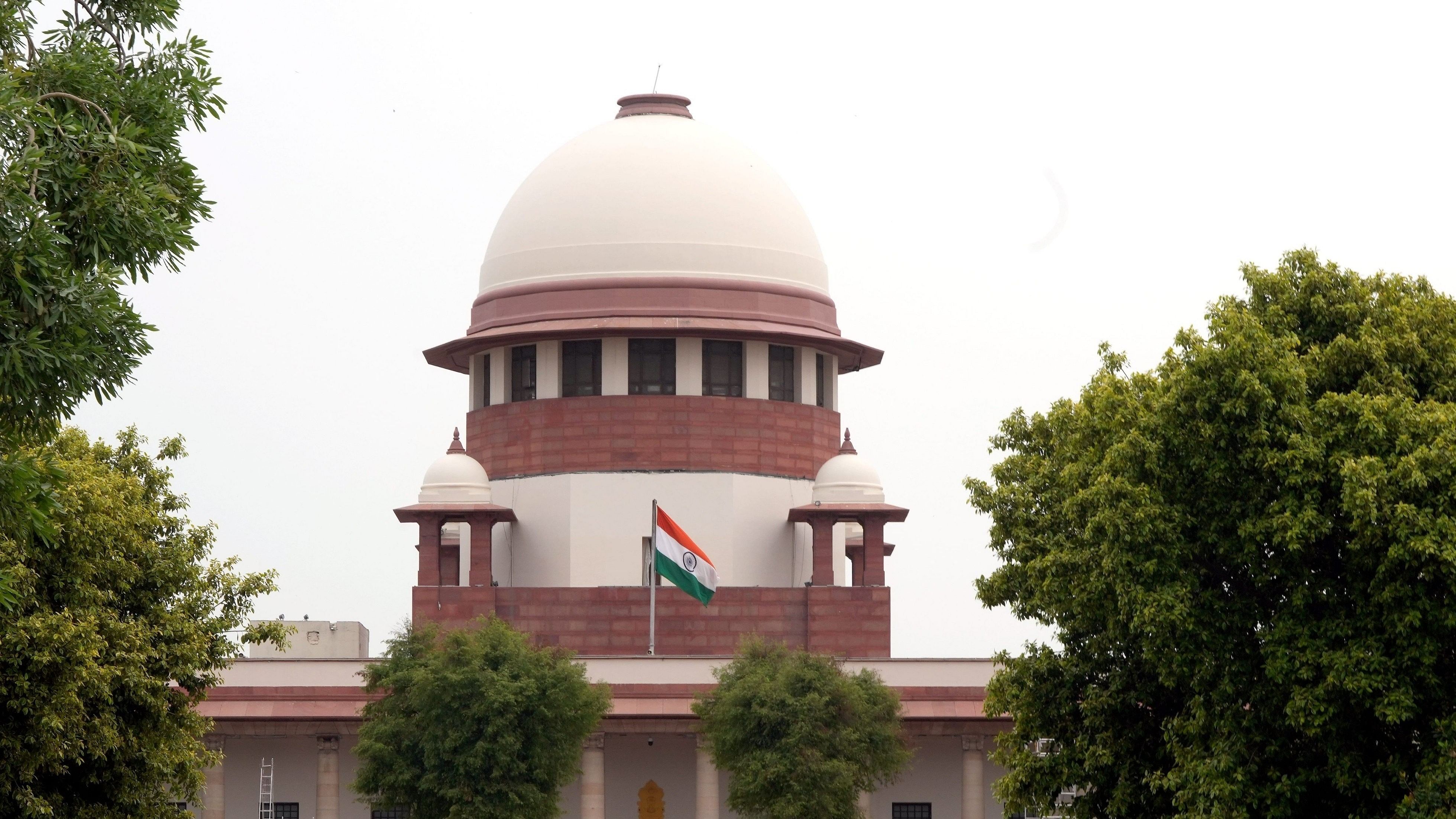
The Supreme Court of India.
Credit: PTI File Photo
New Delhi: The Supreme Court has said presence of the spouse of an applicant either physically or virtually is mandatory for an Overseas Citizens of India (OCI) Card.
A bench of Justices Hrishikesh Roy, Sudhanshu Dhulia and S V N Bhatti set aside judgments by the Delhi High Court's single and division bench which held that insisting on producing the husband at the time of personal interview for OCI card application for an Iranian citizen, Bahareh Bakshi was clearly arbitrary. The court declared the HC's judgments as unsustainable.
"We are of the view that the direction (by the HC) to dispense with the presence of the applicant’s spouse, has no legal basis," the bench said, acting on appeal by the Union government.
Moreover, the court pointed out that apart from the physical or virtual presence of the spouse, other conditions are also to be satisfied by an applicant as is provided under the Citizenship Act 1955, the checklist and the Visa Manual for which even a declaration by the husband may be necessary.
The court also felt if the procedure dispensing with the presence of the spouse is permitted to be adopted, it will firstly be a departure from the notified procedure.
Moreover, the entire burden of verification would completely shift to the authorities. For the OCI card, it is for the applicant to satisfy the authorities in the manner prescribed, on the genuineness of her application, the bench added.
The court held that the division bench was unjustified in holding that mandating the physical presence of the husband is arbitrary.
It also opined that in the absence of any challenge to the provisions of the Citizenship Act 1955, the Visa Manual, administrative instructions, or the checklist, "such observations of the High Court were unmerited".
The woman, seeking the OCI card, claimed that she got married in 2009 in Dubai with the Indian national Paul Fel-El-Dingo D’Silva, an Indian citizen, after he had converted to Islam. She subsequently got relocated to Bengaluru on insistence of the husband.
She claimed that due to financial difficulties, her husband motivated her to pursue her Postgraduate degree in Biotechnology in Bengaluru and her Doctorate from Mysore University to contribute to the family income. However, in the meanwhile, the relationship soured between the respondent and Paul and he left her to reside with his family in Goa. The woman then instituted proceedings for maintenance too, which resulted in order to get Rs 15,000 as monthly amount.
However, in 2020 when she applied for OCI card with FRRO in Bengaluru, they insisted for presence of her estranged husband.Due to estranged relationship, she said her husband may not appear for personal interview.
Her counsel said the Visa Manual or even the checklist is only a delegated legislation and there is no such condition in Section 7A(d) of the Citizenship Act, 1955 mandating an interview.
On this, the bench said, "We are disinclined to accept this submission as Section 7A(1) specifically notes that the registration of OCI Card by the Central Government is ‘subject to such conditions, restrictions and manner as may be prescribed’. Therefore, the Act clearly allows for supplementary procedures, such as an interview as specified in the Visa Manual as well as the Checklist".
Her counsel said her case may be considered under the category of a ‘special circumstance’ as the rules are silent for such a category. To this, the bench said such a discretion is entirely left to the central government.
